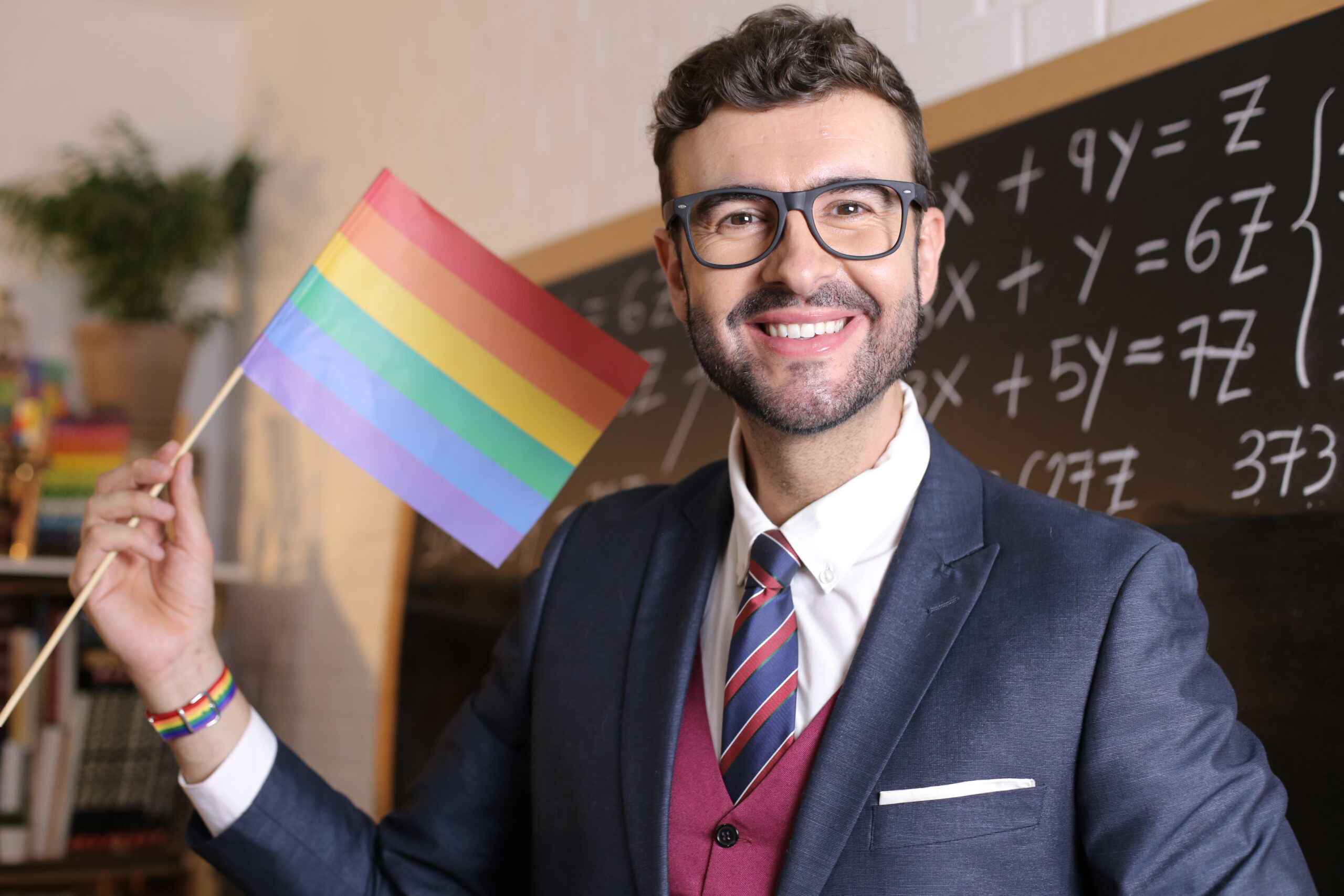While “Don’t Say Gay” laws continue to prevent LGBTQ+-inclusive education, these 7 states are actively ensuring that their schools stay queer-friendly.
In 2022, Florida became the first state to sign into effect a HB 1557, commonly known as the “Don’t Say Gay” law. The law, signed by Gov. Ron De Santis, prohibits instruction around sexual orientation and gender identity by school personnel or third parties. However, due to the vagueness of the law, it became pervasive, causing harm to LGBTQ+ students and their families. In addition to book bans across the the U.S., more “Don’t Say Gay” laws popped up around the country.
Now, 7 states are fighting back.
California, New Jersey, Colorado, Oregon, Nevada, Illinois, and Washington state have implemented legislation mandating the incorporation of LGBTQ+-inclusive curricula within the public schools, as reported by the Movement Advancement Project (MAP). Washington is the most recent to move forward with this legislation, where Senate Bill 5462 was signed into effect Gov. Jay Inslee, mandating Washington school districts adopts of curricula that’s “culturally and experientially diverse as possible” by the 2025-26 school year. This mandate will strive not only provide LGBTQ+ education, but will focus on the histories of people of color and people with disabilities.
Join the frontline of change
Be informed, be inspired, and be part of the conversation that’s shaping a queerer world with our twice-a-week newsletter.
“I’ve seen firsthand how important an inclusive curriculum can be and how life-changing it can be to help a student see themselves in the curriculum instead of some old dead white guys from the 1700s,” Kristie Bennett, a Washington state high school and leader of her school’s gender-sexuality alliance organization.
While these 7 states have implemented protections for LGBTQ+-inclusive curricula, according to MAP, 7 others states (Iowa, North Carolina, Florida, Arkansas, Kentucky, Indiana, and Alabama) have enacted laws to restrict education around gender and sexuality. Additionally, MAP reported that 5 states (Arizona, Montana, Tennessee, Arkansas, and Florida) required “advance parental notification of any LGBTQ-related curricula and allows parents to opt their children out (or requires opt-in)” and 4 other states (Texas, Oklahoma, Louisiana, and Mississippi) restricted “how schools can discuss ‘homosexuality’ in specific curricula.”
And that doesn’t include the 28 states, 5 territories, and Washington, D.C., of which do not have an LGBTQ+ curricular protections. Still, these 7 states are blazing the trail for LGBTQ+-inclusive education within the U.S.
Related:
Florida’s “Don’t Say Gay” law is finally on its way out
Plaintiffs argued that the law was intentionally vague in order to inspire fear and self-censorship concerning LGBTQ+ topics.
Witness the chilling numbers behind 2023’s book ban surge
The book ban surge was driven by “pressure groups” challenging “dozens or hundreds [of titles] at a time.”
Don't forget to share:
Help make sure LGBTQ+ stories are being told...
We can't rely on mainstream media to tell our stories. That's why we don't lock our articles behind a paywall. Will you support our mission with a contribution today?
Cancel anytime · Proudly LGBTQ+ owned and operated
Read More in Impact
The Latest on INTO
Subscribe to get a twice-weekly dose of queer news, updates, and insights from the INTO team.
in Your Inbox















